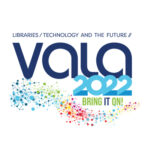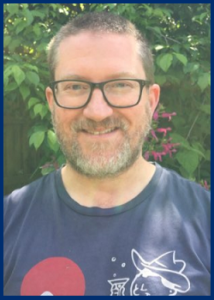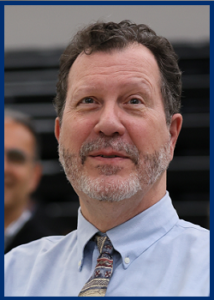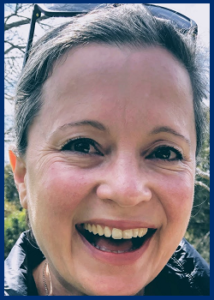Researcher Engagement Framework: when your boss tells you to promote RDM, how do you do it?
 VALA2022 CC1 TABLE 1
VALA2022 CC1 TABLE 1
Wednesday 15 June 2022, 09.15-09.45 and 09.55-10.25
Patrick Splawa-Neyman
- Health Data Librarian
- Monash University Library
Please tag your comments, tweets, and blog posts about this session: #vala2022 #cc1
Abstract
The Researcher Engagement Framework was developed due to the growing requirement for librarians to engage with researchers to promote library services. The Researcher Engagement Framework is a tool primarily for librarians who do not have a research background, and aims to improve the likelihood that a promoted library service will be valued and supported by academics. It is a guide to assist with interactions, not a replacement for thorough preparation.
The Framework was developed based on experience in libraries in higher education. Librarians and research support staff in institutions across Australasia are expected to use existing skills to promote unfamiliar data management tools and services. The problem that often arises is that librarians are left directionless in an unfamiliar environment without a clear directive to follow. The Framework was developed to provide librarians with structure for researcher interactions specifically when discussing research data management. It has not been formally evaluated except empirically by using it in interactions with researchers. The feedback and observations from these interactions have then been used to update and modify the Framework.
This Framework has not been extensively tested therefore I hope to gain valuable insight from the participants into how it can be implemented for data management, how it can be implemented beyond data management and any other factors that have not been taken into consideration.
The Framework is composed of three components:
1. Categorisation – aims to place researchers into one of four quadrants based on their data management knowledge and desire for data management knowledge. This answers the question of what level of support librarians can expect to receive from researchers. Categorisations include advocacy, learning, disinclination and ambivalence.
2. Considerations – aims to ensure that what is important to researchers is taken into account. This will assist librarians to be aware of all aspects of research and help uncover why a library initiative might meet with resistance. Considerations include cost, time, restrictions, value and pitfalls.
3. Metrics – aims to measure from an institutional perspective which researchers are the most successful and valued. This may help to uncover reasons why a proposal might meet with resistance. Metrics include completions, publications, grants and citations.
The Critical Conversation will also include the advantages and limitations of the Framework.
Biography
 As a project manager in data management Patrick has a proven track record of deeply engaging with researchers, raising the profile of open scholarship and open data, and successfully working collaboratively across institutions. His unique blend of skills from pharmaceutical sales, and sales and marketing for an open data vendor has led to the practical application of research data management support. He is motivated to support researchers and support staff to make informed, data-driven decisions.
As a project manager in data management Patrick has a proven track record of deeply engaging with researchers, raising the profile of open scholarship and open data, and successfully working collaboratively across institutions. His unique blend of skills from pharmaceutical sales, and sales and marketing for an open data vendor has led to the practical application of research data management support. He is motivated to support researchers and support staff to make informed, data-driven decisions.
This work is licensed under a Creative Commons Attribution-NonCommercial License.

 Alan Manifold has more than forty years’ experience in library automation in the US and Australia, and now serves as Digital Preservation Manager at State Library Victoria. He led development of a home-grown integrated library system, and has worked extensively with NOTIS, Voyager, Aleph, Primo, ArchivesSpace, and Alma. In 2015, Australia awarded him a Distinguished Talent visa in library automation. He has served on NOTIS, Endeavor, and Ex Libris User groups, and on the VALA Committee. He has integrated several systems that had no real business being integrated with each other, but has no regrets!
Alan Manifold has more than forty years’ experience in library automation in the US and Australia, and now serves as Digital Preservation Manager at State Library Victoria. He led development of a home-grown integrated library system, and has worked extensively with NOTIS, Voyager, Aleph, Primo, ArchivesSpace, and Alma. In 2015, Australia awarded him a Distinguished Talent visa in library automation. He has served on NOTIS, Endeavor, and Ex Libris User groups, and on the VALA Committee. He has integrated several systems that had no real business being integrated with each other, but has no regrets! Dr Sara King is the Training and Engagement Lead for AARNet. She is focused on outreach within the research sector, developing communities of interest around training, outreach and skills development in eResearch. She is passionate about helping others develop the infrastructure and digital literacies required for working in a data-driven world, translating technology so it is accessible to everyone.
Dr Sara King is the Training and Engagement Lead for AARNet. She is focused on outreach within the research sector, developing communities of interest around training, outreach and skills development in eResearch. She is passionate about helping others develop the infrastructure and digital literacies required for working in a data-driven world, translating technology so it is accessible to everyone. Laki Sideris has been in the electronic publishing industry more than twenty years. He is currently the Head of Product at Informit. Over the years he help bring to life many Informit databases such as APAFT, TVNews and EduTV. He has also lectured for many at RMIT University in their Information Managment department.
Laki Sideris has been in the electronic publishing industry more than twenty years. He is currently the Head of Product at Informit. Over the years he help bring to life many Informit databases such as APAFT, TVNews and EduTV. He has also lectured for many at RMIT University in their Information Managment department.